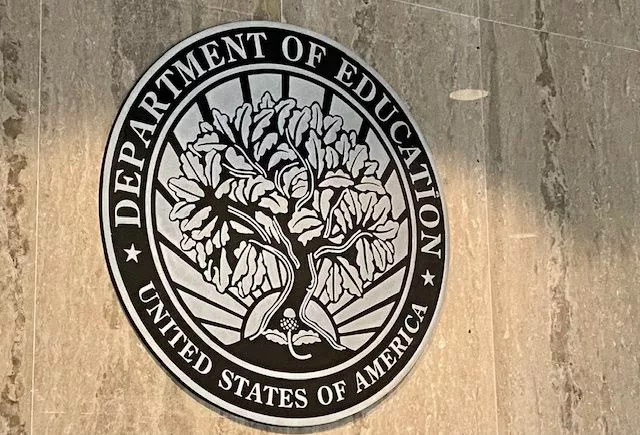[ad_1]
Dive Brief:
- The U.S. Department of Education said Tuesday it will use secret shoppers to monitor whether colleges are misrepresenting themselves in areas like graduation rates and job placements.
- Shoppers will be one tool to “evaluate recruitment, enrollment, financial aid, and other practices of postsecondary institutions to help identify potentially deceptive or predatory practices used to recruit and enroll students,” the Education Department said in a statement.
- The agency said it may rely on secret shoppers’ findings as evidence in ongoing investigations into colleges or use them to initiate such reviews.
Dive Insight:
The Biden Education Department has attempted to dial up oversight of poorly performing institutions.
Earlier this year, the agency said it would craft a public list of “low financial value” programs, which pundits took as a strategy to shame institutions. And just this month, the agency issued guidance on how it intends to hold leaders of private colleges personally liable should their institutions “fail to operate in a financially responsible way” and cost the federal government money.
Further, the Education Department restarted the enforcement wing of the Office of Federal Student Aid, or FSA, in 2021. Officials said Tuesday this investment “has already paid dividends,” as the office has begun fraud investigations into multiple institutions, and fined and removed others from participating in the federal student aid program.
Many of the Biden administration’s accountability efforts have targeted for-profit colleges, which the Education Department argues have track records of defrauding students. The for-profit sector has rebutted that the department should be fair and more closely watch all types of institutions.
The Education Department’s announcement Tuesday does not single out for-profit institutions. However, it mentions the department will use secret shoppers to monitor metrics that for-profits have come under fire for misrepresenting, like their graduates’ earning potential and whether they are accredited.
“Schools that engage in fraud or misconduct are on notice that we may be listening, and they should clean up accordingly,” Kristen Donoghue, FSA’s chief enforcement officer, said in a statement. “But schools that treat current and prospective students fairly and act lawfully have nothing to fear from secret shopping.”
The department also warned Tuesday it will take more aggressive action against colleges that lie to military members and veterans about opportunities.
Some for-profit colleges have historically targeted military-connected students because their benefits did not apply to what’s known as the federal 90/10 rule. That rule requires for-profit colleges to derive at least 10% of their revenue from areas other than Title IV financial assistance.
Benefits like those from the U.S. Department of Defense’s Tuition Assistance program and GI Bill are not considered Title IV funding. This enabled for-profit colleges to apply that revenue toward the 10% requirement, as they could private financing sources. However, the Education Department recently ended this practice through regulation.
The department said Tuesday it knew of allegations that some colleges had told military-affiliated students their GI Bill aid would cover the entire cost of their education, for them only later to find out it did not.
Institutions also incorrectly informed some of those students they had been approved for GI Bill benefits for particular programs when they had not been, or they offered a “military discount” that did not exist, the Education Department said.
And some students even reported loans were taken out in their names without their knowledge, the agency said.
The Education Department is now accepting tips from the higher ed sector and the public at large on colleges’ legal and regulatory violations.
“If the Department determines that an institution misrepresents cost or financing to military-connected students or has taken out loans in a prospective student’s name without that student’s knowledge or consent, it will address such violations and seek all appropriate corrective measures,” the agency said.
[ad_2]
Source link
To find out about the courses we have on offer: Click Here
Join the Course: Click Here


